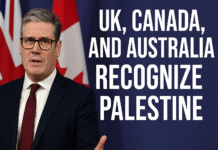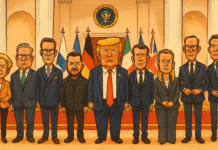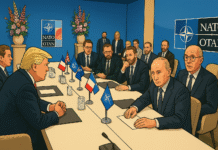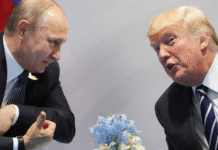
|
Getting your Trinity Audio player ready...
|
In a groundbreaking decision, the International Court of Justice (ICJ) in The Hague has directed Israel to undertake decisive measures aimed at averting genocide in the Gaza Strip. The ruling follows a comprehensive case initiated by South Africa at the United Nations’ highest court, probing allegations of genocide against Palestinians amidst Israel’s conflict with Hamas.
Although the verdict lacks immediate enforceability, its symbolic significance cannot be overstated. While the legal proceedings to determine Israel’s culpability in genocide are anticipated to be protracted, the ICJ’s directive represents a pivotal development in the Israel-Hamas conflict.
The ICJ’s order, hailed by Palestinian Minister of Foreign Affairs Riyadh Maliki as a triumph for humanity and international law, mandates Israel to implement measures aimed at safeguarding civilian lives in Gaza. These measures include refraining from targeting specific groups and ensuring conditions conducive to safe childbirth. Additionally, Israel is tasked with preventing and penalizing public rhetoric that incites genocide.
Despite not explicitly demanding an immediate ceasefire, the ICJ’s decision places pressure on Israel to reassess its military campaign. Israeli Prime Minister Benjamin Netanyahu reiterated his nation’s resolve to defend itself until Hamas is defeated and all hostages are released, underscoring the complexities of achieving a cessation of hostilities.
Palestinian lawmaker Mustafa Barghouti emphasized the impracticality of implementing ICJ decisions amid ongoing conflict and widespread destruction in Gaza. The ruling underscores the urgent need for a permanent ceasefire to facilitate compliance with international legal standards.
The ICJ’s ruling also implicates the United States, historically a staunch ally of Israel. With mounting international scrutiny, the U.S. faces escalating calls to intervene and advocate for peace. The prospect of a U.N. Security Council vote, which could entail economic sanctions or military action, presents a delicate diplomatic dilemma for the Biden administration.
Trita Parsi, co-founder of the Quincy Institute for Responsible Statecraft, highlights the potential repercussions of U.S. intervention, underscoring the need to balance political allegiances with global humanitarian concerns. Nancy Okail, President and CEO of the Center for International Policy, underscores the broader implications of the ICJ’s decision, urging unequivocal acknowledgment and action from all nations.
Looking ahead, Israel is required to furnish a comprehensive report to the ICJ within a month, detailing its adherence to the prescribed measures for preventing genocide in Gaza. Despite expressions of disappointment and defiance from Israeli officials, including Defense Minister Yoav Gallant and Foreign Minister Israel Katz, the international community remains focused on diplomatic efforts to broker a lasting ceasefire.
Attention now turns to reports of President Joe Biden’s proposed intervention through CIA Director William J. Burns, signaling a renewed push for dialogue and negotiation in the Middle East. As stakeholders navigate the complexities of regional dynamics, the imperative for constructive engagement and multilateral cooperation has never been more pressing.


















